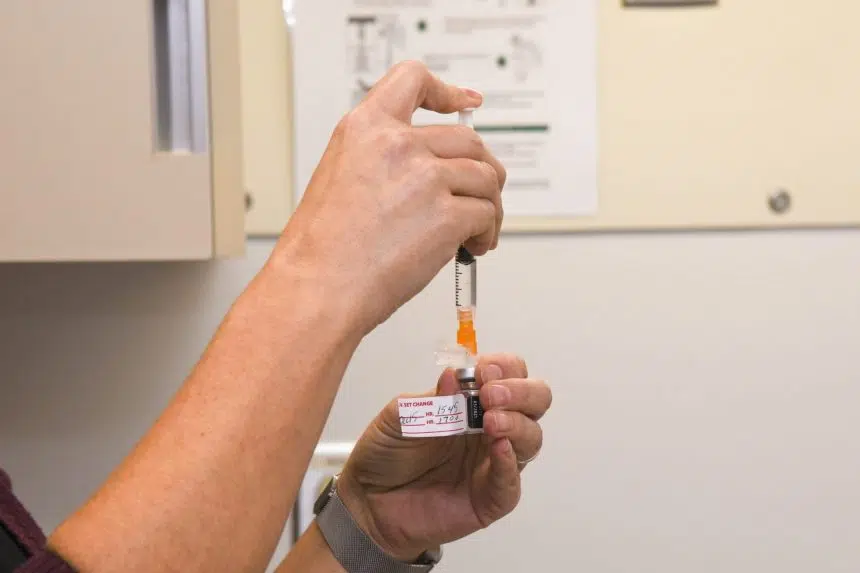Thousands of people across Saskatchewan are rolling up their sleeves for a COVID-19 vaccine every day, but not everyone is completely convinced about getting the shot.
So how do public health officials educate and convince people that vaccines are safe and effective?
Michelle Patterson, a registered nurse and clinical co-ordinator at the University of Saskatchewan, has a lot of experience dealing with vaccine hesitancy. She has worked in clinics administering vaccines for diseases like measles for six years.
Now, she is working at COVID immunization clinics.
In her experience, she has come across quite a few people who aren’t sure if they feel safe getting a vaccine.
“It’s really normal for people to be worried about putting something in their body when they’re healthy …” she said. “Immunization is giving people who are healthy something to prevent disease and injecting something in us when we’re healthy seems foreign.
“Generally, that’s the biggest concern.”
She explained there are other reasons people might be scared, such as having seen something on social media or hearing negative talk about vaccines from a friend.
“Quite often, I find people are just misinformed,” Patterson said.
As such, communication is an important part of the job for those in public health.
“It’s really important for a health-care provider to hear what the person is saying and understand where they’re coming from, so that then we can answer their questions and provide them with the accurate information,” she continued. “Health-care professionals need to be completely open-minded and non-judgmental when talking to people.”
It’s also important to be open and honest about potential side effects and risk factors, but there is more to it.
“The important part is to emphasize how rare these reactions (to the vaccine) are and then to share with (people) everything they’re looking for in case that happens so they can seek medical care,” Patterson explained.
She shared some advice for people who are still struggling with worries about vaccines.
“Just ask questions and (don’t) wait. This hesitancy and waiting to see what happens like, ‘Maybe I’ll wait for a different vaccine,’ or, ‘I’ll wait and see if COVID gets worse or better’ — that waiting is what’s making things dangerous out there …,” she said.
“If you’re worried, if you have any hesitancy whatsoever, talk to a health-care professional so you can get the right information and then get immunized.”







